Home > Solution and Services > For Individuals > Health Insurance

Health insurance is an insurance policy designed to protect you from the rising cost of health care. It can help cover expenses ranging from routine doctor visits to major surgical costs from a serious illness or injury. You can buy different types of policies that offer various levels of cover, at varying costs. There are basic plans and premium plans, local and international plans and so on.
Having a good health insurance policy in place can help ensure you receive prompt and effective care should you or a loved one falls ill or gets injured.
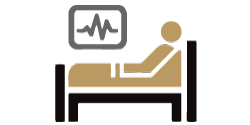
This includes staying in a hospital bed for tests or surgery.

This includes consultations, diagnoses and treatment when you do not need to stay overnight
In addition to that, plans can be customized to include a wide range of additional benefits that can help you take control and pro-actively manage the health and wellbeing of you and your family.
There is a wide choice of health insurance policies available – they range from basic through to comprehensive – which is the best for you depends on your circumstances, needs and budget. Here are some of the important things to keep in mind when choosing a health insurance plan
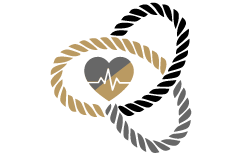
Always buy your insurance through a reputed insurance broker – Like Edge!

Do the health care providers, hospitals and pharmacies you prefer fall within the approved network of the particular plan? It’s important to remember that in-network services and medicines are generally covered under a plan, while out-of-network services and medicines require additional out-of-pocket costs or are not covered at all. It is advisable to choose an insurance policy which covers at least some of the major health care providers near your home.

Keep in mind that some local plans may only cover your emirate, while others may provide UAE-wide coverage. Regional plans can cover the GCC, Middle East, Indian Sub-Continent etc. and International Plans can provide cover in US and Canada within worldwide coverage.

Health insurance plans, nowadays, offer a wide range of coverage features which make them different. Every plan is composed of different coverage features and you should understand the benefits offered under every plan before you buy one
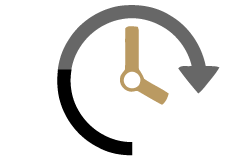
Waiting periods prevent you from being able to make claims for certain benefits, soon after purchasing an insurance plan, such as for maternity or pre-existing conditions. The duration of a waiting period varies among insurance companies, usually 6 months but in some cases can even be up to 12 months, depending on the plan. It is best to speak with one of our advisors to find out more information on waiting periods and how they are applied to specific coverage options.
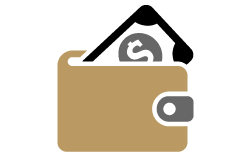
Deductibles are fixed charges that you must pay out of pocket before your coverage kicks in. Co-payment mandates that the policyholder will bear a pre-defined percentage of the overall treatment cost and the rest will be settled by the Insurer. You can choose different options of deductible and co insurance to arrive at the premium suiting your budget and coverage needs.
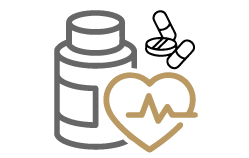
A Pre-existing Condition is any ailment, illness or medical condition in which the policyholder was aware of, experienced symptoms of or received treatment before the start date of a Health Insurance plan. This has an impact on the overall policy premium. Most insurers exclude pre-existing conditions. The few insurers who accept it do it on a case-by-case basis depending on the condition. Others may apply a waiting period and a sublimit.
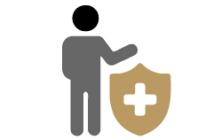
Take the time to read any exclusions and make sure that you’re comfortable with what’s covered – you could find the list of covered benefits are very limited.

The last consideration is the exclusions list. All policies are subject to exclusions. it would be prudent to read and understand the exclusions that are listed in the policy before you buy it.
Looking for health insurance coverage to cover your basic medical needs?
The Essential Benefits Plan, a scheme that the Dubai Health Authority (DHA) has made obligatory in the Emirate of Dubai, is the minimum Healthcare Insurance cover that every employer/sponsor will have to provide his employees & dependents. To obtain a new visa or renewal through the General Directorate of Residency and Foreigners Affairs (GDRFA), you must have medical insurance.
This is an affordable plan for lower income members (earning less than AED 4,000 per month), as determined by Dubai Health Authority, with key benefits like:


Dependents
Who is considered a dependent?
A person who is sponsored by another individual like:
– Spouse
– Children
– Parents
Due to obvious health reasons, insurance premium for elderly parents (older than 65) is higher and so is the premium for married females (aged 18 to 45), who are considered most susceptible to pregnancies.

Salaried Individuals
Who is considered as a salaried individual?
A self-employed individual under his or her company’s sponsorship or an individual sponsored by an entity and earning a fixed salary; such as:
– Housemaid
– Nanny
– Driver
– Gardner
– Cook
Buying health insurance may seem a little daunting, especially that there are multiple key things to consider, and no one wants to feel like they are missing something crucial. So, when you request Edge to compare health insurance quotes, we’ll initially ask you to fill a Medical Application Form and to provide information about yourself, such as your age, height, weight, and answer other general health and well being questions like ongoing medications, and recurring or chronic illnesses or diseases.
We’ll then ask you for your ideal budget so that we can help you find affordable coverage.
If you have feedback, complaints, suggestions or compliments with regards to a service provider, please share your experience with us or submit directly on the DHA’s Insurance Partner Relation Management E-system.
Quickly find out if we’ve already addressed your query.
Answer a few questions to help us point you in the right direction for a better deal on your insurance.

Edge Insurance Brokers is an independent insurance brokerage created to be one with a difference that will afford clients with added value in return for their confidence and long-term allegiance. Our expertise in every facet of risk and across different industries help our clients foresee, quantify, and better comprehend the range of risks they may face.
+971 7 244 4458
info@edgeinsbrokers.com